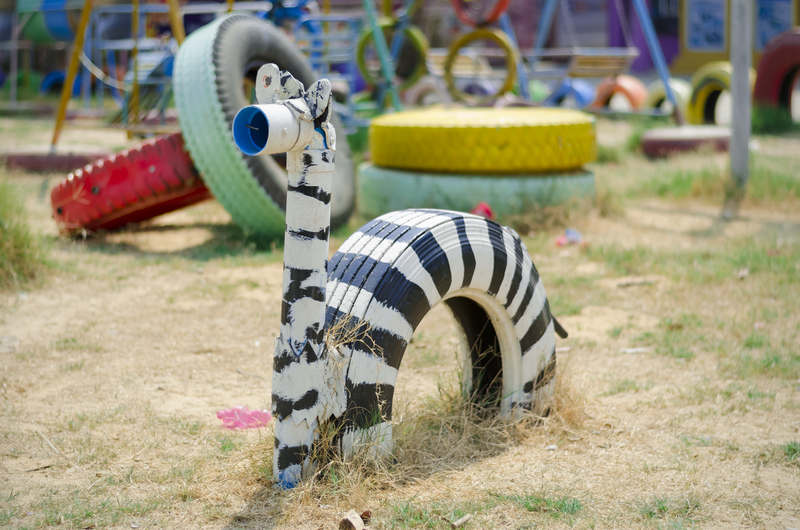Bulky Waste Items: Proven Tips to Keep Disposal Costs Low
Bulky waste items like old mattresses, worn-out sofas, refrigerators, and other large household items can make any cleanup feel overwhelming. What's worse, the costs associated with disposing of these items can quickly add up if you're not careful. Fortunately, with some planning and a few smart strategies, you can keep the expense of bulky waste disposal to a minimum while ensuring your home stays tidy. In this comprehensive guide, we'll explore proven tips to keep disposal costs low for bulky waste items and help you make the most out of available options.
What are Bulky Waste Items?
Bulky waste items refer to large objects that are too big for regular garbage bins and require special handling or transportation. Common examples include:
- Furniture (sofas, beds, wardrobes)
- Household appliances (refrigerators, washing machines, stoves)
- Mattresses and box springs
- Large electrical items (televisions, computers)
- Old carpets and rugs
- Outdoor play equipment
- Bicycles and garden machinery
Unlike regular trash, disposing of oversized waste often incurs additional costs, requiring special collection services or trips to dedicated recycling centers. But with a little know-how, you can significantly reduce these expenses.

Why Do Bulky Waste Disposal Costs Add Up?
The cost of bulky waste disposal tends to be higher than ordinary trash due to factors like:
- Special handling requirements (lifting, transportation, and manual labor)
- Landfill fees and rising environmental levies
- Recycling regulations that necessitate sorting and processing
- Limited collection days by local councils or waste services
Understanding these cost drivers gives you an edge in finding alternatives to keep your expenses low.
Proven Tips to Keep Bulky Waste Disposal Costs Low
Let's dive into actionable ways to manage, minimize, or even eliminate bulky waste disposal charges. Here are proven, practical tips you can start using right away:
1. Take Advantage of Local Recycling Centers
Many municipalities operate recycling centers or "household waste recycling sites" where residents can drop off bulky items for free or for a small fee. These facilities often accept:
- Furniture
- White goods (fridges, freezers, washing machines)
- Electronics
- Scrap metal
Tip: Check your local council's website for opening hours and a detailed list of accepted items. Bringing your bulky waste directly to these sites can save you both the collection fee and landfill costs.
2. Schedule Free Bulky Waste Collection
Some local authorities provide a number of free bulky item pickups per year for residents. While the availability and frequency vary by location, this service is an excellent way to dispose of large items at no extra cost.
- Contact your local council to request a collection slot
- Ensure items are placed curbside according to the specified guidelines
- Group smaller items together to maximize each collection
Using your allocated free collections wisely can cover the majority of your bulky waste disposal needs.
3. Donate Unwanted Furniture and Appliances
If your furniture or appliances are still in usable condition, consider donating them to:
- Charity shops or second-hand stores
- Non-profit organizations
- Churches or community centers
- Online charity networks
Some charities even offer free collection for large items like sofas, beds, and wardrobes. This not only saves you disposal fees but also supports a good cause.
4. Sell or Give Away Bulky Items Online
Thanks to the internet, it's easier than ever to clear out unwanted items and potentially earn some cash. Use online platforms such as:
- Facebook Marketplace
- Craigslist
- Freecycle
- Gumtree
- OfferUp
Pro-tip: List items as "free to collect" to increase interest and eliminate your transport costs. Even broken appliances can find new homes for parts or DIY projects!
5. Hire a Skip Bag for Flexible, Affordable Collection
For home renovations or big clear-outs, consider using a skip bag service. Skip bags are large, durable sacks delivered to your home, which you fill at your own pace. When ready, book a collection--often at a lower rate than full-size skip hire.
Skip bags are particularly cost-effective for bulky but lightweight items, allowing you to control disposal costs based on your volume and schedule.
6. Break Down and Dismantle Items Yourself
Disassembling bulky waste items can drastically reduce the volume and allow you to:
- Fit waste into your general weekly bin collections (where allowed)
- Transport smaller pieces in your vehicle to recycling centers
- Separate recyclable materials (wood, metal, plastics) for specialized drop-off
The less space your waste takes up, the lower your disposal fees will be. Many facilities charge by item or by volume, so a little DIY can lead to considerable savings.
7. Share Collection with Neighbors
Pool resources to save money! If your neighbors are also disposing of bulky items, coordinate to:
- Book a shared skip or skip bag
- Split the cost of private waste collection
- Combine loads for a trip to the recycling center, saving fuel
This approach is not only economical but also reduces the environmental footprint of disposal activities.
8. Opt for Pay-as-You-Go Private Collection Services
If local options are limited, private bulky waste removal companies offer pay-as-you-go disposal. When using these services:
- Compare quotes from multiple providers
- Check what's included (lifting, loading, recycling, disposal fees)
- Ask about discounts for pre-sorted or dismantled items
Some companies charge less for specific materials (like metal or electronics), so separating items before collection can work in your favor.
9. Wait for Community Clean-Up Days
Many towns run annual or seasonal community bulky waste cleanups. On these designated days, residents are encouraged to bring oversized waste for free or discounted disposal:
- Household hazardous waste days
- Spring or fall cleaning events
- Electronics recycling days
Get on your city's mailing list or check the municipality website to stay informed about upcoming opportunities.
10. Reuse and Repurpose When Possible
The greenest (and cheapest) form of disposal is not to dispose at all!
- Transform old wood furniture into garden planters
- Use mattresses for creative DIY projects
- Convert shed frames or play equipment into storage units
Not only do you save on disposal costs, but you also unleash your creativity and reduce waste overall.
Common Mistakes that Drive Up Bulky Waste Disposal Costs
Even with the best intentions, certain choices can result in significantly higher costs:
- Last-minute bookings: Emergency waste removals are typically more expensive
- Booking large skips when half the space will do: Pay only for what you need
- Ignoring free or subsidized local services: Missing out on council pickups or recycling center capacity
- Mixing hazardous and non-hazardous items: This can lead to extra charges or refusal of service
- Leaving items outside in poor weather: Waterlogged or damaged items may be refused, requiring extra effort and cost
Staying mindful can protect your wallet and your peace of mind.

Environmental Impact: Choose Responsible Bulky Waste Disposal
In addition to saving money, thoughtful disposal of bulky items protects the environment. Sending recoverable materials to landfill not only costs more but also contributes to pollution and resource waste. Here's how you can make your disposal more sustainable:
- Prioritize recycling: Separate metal, wood, textiles, and electronics
- Donate or sell items before discarding: Prolong their useful life
- Choose licensed carriers: Ensure your waste is handled responsibly
- Keep hazardous items separate: Batteries, fridges, and electronics require special processing
Many private collectors now guarantee a high diversion from landfill, so ask about their recycling rates before booking.
Conclusion: Savvy Solutions for Bulky Waste, Lower Costs
Tackling bulky waste items and keeping costs low doesn't need to be stressful. By planning ahead, utilizing free or low-cost local services, breaking down large items, sharing resources, and always seeking to recycle or reuse, you can dispose of large items responsibly and economically.
- Check your local council's website for free collection or recycling options
- Donate when possible and list items online to find new homes
- DIY dismantle to fit more into each load or collection
- Share removal services for extra savings
With these proven tips, you'll not only keep your bulky waste disposal costs low but also help create a cleaner, greener community. Happy decluttering!
Ready to start?
Assess your bulky waste items, tap into your local resources, and keep your disposal bills in check today!